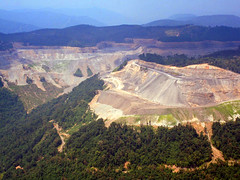
Austin, Texas–which we have always considered to be a little slice of Massachusetts right in the middle of the Lone Star state–has become the first town to pass and ratify a law that makes an energy audit mandatory when you sell a home within the city limits.
Almost 400 audits have been performed under the new ordinance which was passed in November 2008 and went into effect June 1 this year. After a furious lobbying effort by the Austin Board of Realtors, homeowners are not required to make all improvements, but the results will likely be used as a bargaining chip in most purchases.
One homeowner found that over 80% of his air-conditioning was leaking through his uninsulated attic and decided to make the repair to improve the prospects of selling his house. In this depressed market, most sellers will be looking for any advantage they can get.
Of course, Austinites have to find an energy auditor and pay for the audit. Luckily, if you live in Cambridge, requesting an audit is as simple as filling out a simple form and in many cases it’s free.


 The conservative backlash against the Waxman-Markey Cap and Trade bill has started.
The conservative backlash against the Waxman-Markey Cap and Trade bill has started. The controversial
The controversial 
 Recently, Congress decided that
Recently, Congress decided that 
 Last week, ABC premiered “The Goode Family” a new animated series from Mike Judge, the creator of “Beavis and Butthead” and “King of the Hill.”
Last week, ABC premiered “The Goode Family” a new animated series from Mike Judge, the creator of “Beavis and Butthead” and “King of the Hill.”



